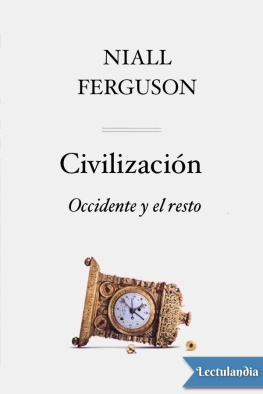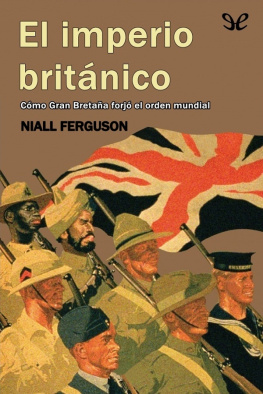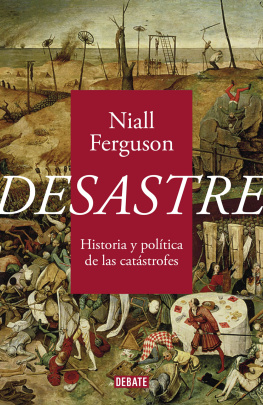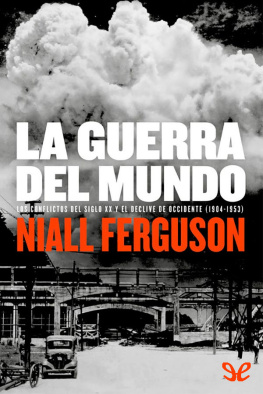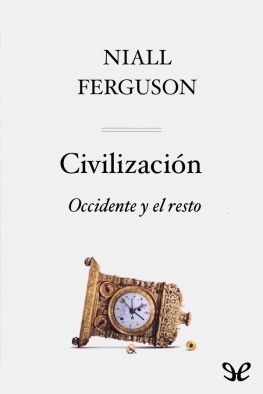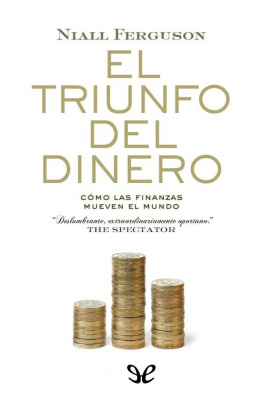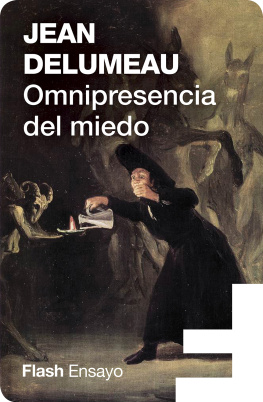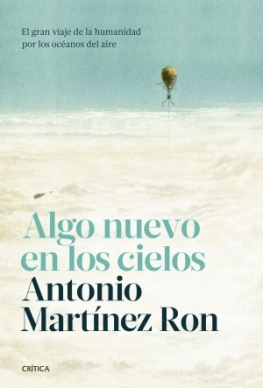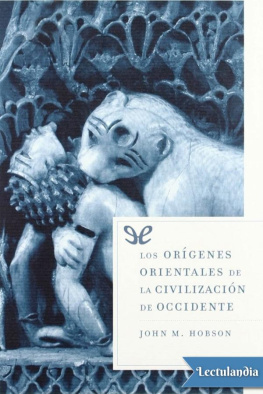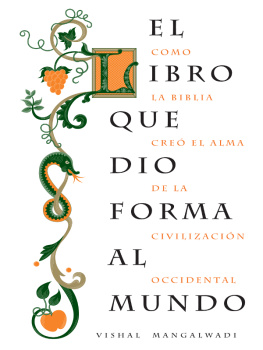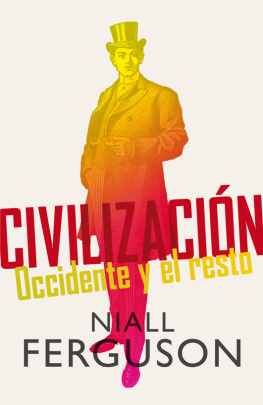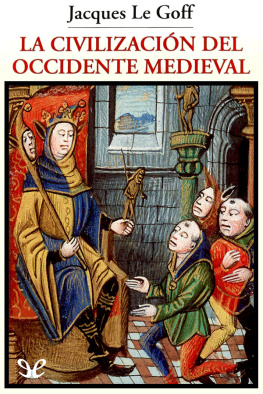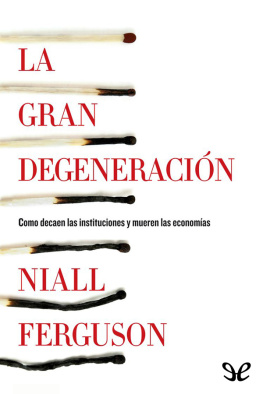
Si nos embarcáramos en un viaje alrededor del mundo en 1411, lo más interesante sería ser testigos del desarrollo de las brillantes civilizaciones orientales. La Ciudad Prohibida estaba en plena construcción en el Pekín de los Ming, y en Oriente Próximo los otomanos acechaban Constantinopla. En contraste, Europa occidental se encontraba sumida en guerras constantes y estaba debilitada por plagas, falta de higiene y sistemas políticos que dificultaban su apertura. La idea de que Occidente iba a dominar al resto del mundo durante el siguiente medio milenio hubiera parecido ilusoria en esos momentos. Y sin embargo, ocurrió. ¿Qué tenía la civilización de Europa Occidental que le permitió dominar a los superiores imperios orientales? La respuesta, para Niall Ferguson, estriba en que Occidente logró desarrollar seis poderosas herramientas de las que el resto carecía: competencia, ciencia, democracia, medicina, consumismo y la ética del trabajo. La cuestión es si actualmente Occidente ha perdido su monopolio sobre estas seis cuestiones. Si fuera así, podríamos estar viviendo el fin de la supremacía occidental.

Niall Ferguson
Civilización
Occidente y el resto
ePub r1.0
Titivillus 23.09.16
Título original: Civilization: the West and the Rest
Niall Ferguson, 2011
Traducción: Francisco J. Ramos Mena
Editor digital: Titivillus
ePub base r1.2

Para Ayaan

Niall Ferguson (18 de abril de 1964, Glasgow) ocupa la cátedra Lawrence A. Tisch de Historia de la Universidad de Harvard y la cátedra William Ziegler en la Harvard Business School. Asimismo es profesor del Jesus College (Universidad de Oxford), y de la Hoover Institution (Universidad de Stanford).
Considerado el historiador británico más brillante de la actualidad por el Times y una de las cien personas más influyentes del mundo por la revista Time. Entre sus obras destacan El imperio británico (2003), Coloso: Auge y decadencia del imperio norteamericano (2004), La guerra del mundo (2006), El triunfo del dinero (2008), Civilización. Occidente y el resto (2011) y La gran degeneración (2012).
BIBLIOGRAFÍA
INTRODUCCIÓN: LA PREGUNTA DE RASSELAS
Acemoglu, Johnson y Robinson, «Reversal of Fortune: Geography and Institutions in the Making of the Modern World Income Distribution», Quarterly Journal of Economics, 117 (2002), pp. 1231-1294.
Bagby, Philip, Culture and History: Prolegomena to the Comparative Study of Civilizations, Berkeley / Los Ángeles, 1959.
Bayly, C. A., The Birth of the Modern World, 1780-1914, Blackwell, 2004.
Bockstette, Valerie, Areendam Chanda y Louis Putterman, «States and Markets: The Advantage of an Early Start», Journal of Economic Growth (2002), pp. 347-369.
Bozeman, Adda B., Politics and Culture in International History: From the Ancient Near East to the Opening of the Modern Age, Nueva York, 1994 (1960).
Braudel, Fernand, A History of Civilizations, trad. Richard Mayne, Nueva York, 1993.
Brownworth, Lars, Lost to the West: The Forgotten Byzantine Empire that Rescued Western Civilization, Nueva York, 2009.
Cahill, Thomas, How the Irish Saved Civilization, Nueva York, 1995.
Chandler, T., Four Thousand Years of Urban Growth: A Historical Census, Lewiston / Queenstown, 1987.
Chaudhary, Latika, Aldo Musacchio, Steven Nafziger y Se Yan, «Big BRICs, Weak Foundations: The Beginning of Public Elementary Education in Brazil, Russia, India, and China, 1880-1930», borrador de documento de trabajo, 2010.
Clark, Gregory, A Farewell to Alms: A Brief Economic History of the World, Princeton, 2007.
Clark, Kenneth, Civilisation: A Personal View, Londres, 2005 [1969].
Coulborn, Rushton, The Origin of Civilized Societies, Princeton, 1959.
Darwin, John, After Tamerlane: The Rise and Fall of Global Empires, Londres, 2007.
Dawson, Christopher, The Making of Europe: An Introduction to the History of European Unity, Londres, 1932.
Diamond, Jared, Guns, Germs and Steel: A Short History of Everybody for the Last 13,000 Years, Londres, 1998 (hay trad. cast.: Armas, gérmenes y acero. Breve historia de la humanidad en los últimos trece mil años, Barcelona, 2004).
———, «How to Get Rich: A Talk», Edge, 56,7 de junio de 1999.
Eisenstadt, S. N., Comparative Civilizations and Multiple Modernities, Leiden, 2003.
Elias, Norbert, The Civilizing Process, 2 vols., Oxford, 1969 y 1982 [1939].
Elvin, Mark, The Pattern of the Chinese Past, Londres, 1973.
Fernández-Armesto, Felipe, Civilizations: Culture, Ambition and the Transformation of Nature, Nueva York / Londres / Toronto / Sidney / Singapur, 2001.
———, Millennium: A History of our Last Thousand Years, Londres, 1997.
Findlay, Ronald, y Kevin H. O’Rourke, Power and Plenty: Trade, War, and the World Economy in the Second Millennium, Princeton, 2007.
Fogel, Robert W., The Escape from Hunger and Premature Death, 1700-2100: Europe, America, and the Third World, Cambridge, 2003.
Goody, Jack, Capitalism and Modernity, Cambridge / Maiden (MA), 2004.
———, The Eurasian Miracle, Cambridge / Maiden (MA), 2009.
Guyver, Robert, «England and the Battle for the Centre Ground: The History Working Group and the First History War (1988-1991) as an Archetype for Subsequent Wars», en Tony Taylor y Robert Guyver, eds., History Wars in the Classroom: Global Perspectives (en preparación).
Hibbs, Douglas A. Jr., y Ola Olsson, «Geography, Biogeography, and Why Some Countries are Rich and Others are Poor», Proceedings of the National Academy of Sciences of the United States, 101, 10 (2004), pp. 3715-3720.
Huntington, Samuel, The Clash of Civilizations and the Remaking of World Order, Nueva York / Londres / Toronto / Sidney, 1996 (hay trad. cast.: El choque de civilizaciones y la reconfiguración del orden mundial, Barcelona, 2009).
Johnson, Samuel, The History of Rasselas, Prince of Abissinia, Boston, 1811 [1759].
Jones, Eric, The European Miracle: Environments, Economies and Geopolitics in the History of Europe and Asia, Cambridge, 2003.
Kagan, Robert, Of Paradise and Power: America and Europe in the New World Order, Nueva York, 2003.
Kennedy, Paul, The Rise and Fall of the Great Powers: Economic Change and Military Conflict from 1500 to 2000, Nueva York, 1989 (hay trad. cast.: Auge y caída de las grandes potencias, Barcelona, 1994).
Landes, David S., The Wealth and Poverty of Nations: Why Some are So Rich and Some So Poor, Nueva York, 1998.
Laue, Theodore H. von, «The World Revolution of Westernization», History Teacher, 20, 2 (1987), pp. 263-279.
MacGregor, Neil, A History of the World in 100 Objects, Londres, 2010 (hay trad. cast.: Historia del mundo en 100 objetos, Barcelona, en preparación).
McNeill, William H., The Pursuit of Power: Technology, Armed Force and Society since AD 1000

